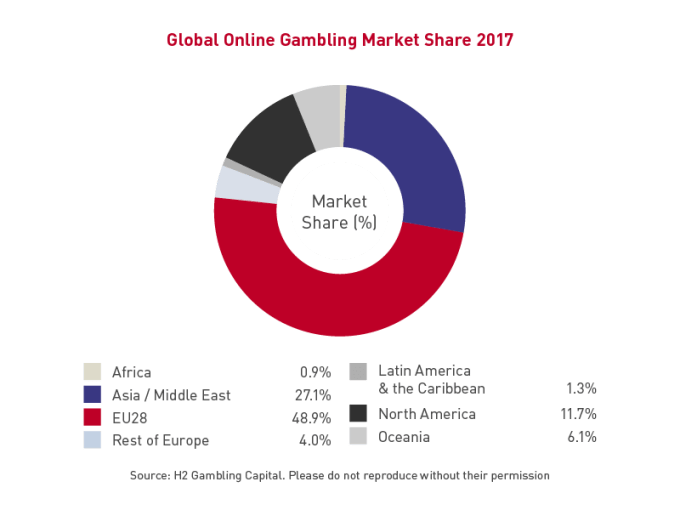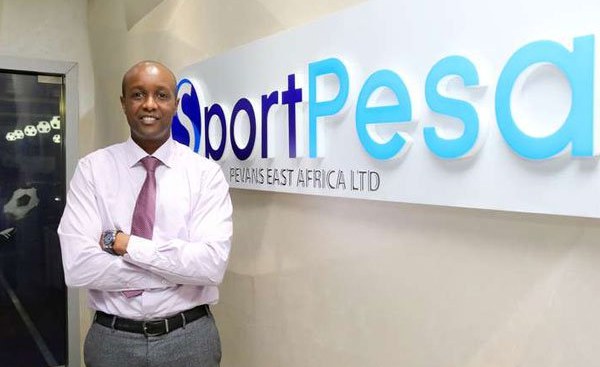More Frustrations For SportPesa As Its New License Is Again Blocked
It appears as though regulators in Kenya are hell-bent on making sure that SportPesa (the Nairobi-based sport betting firm that recently announced its return to the East African country after a one-year absence) never returns to the country. In a new twist of events, Kenya’s Betting Control and Licensing Board (BCLB), under the chairmanship of Cyrus Maina, has written to insist that the betting firm is never ever going to do business under Sportpesa till further notice.

“According to information in our possession, the trading name Sportpesa belongs to Pevans East Africa, a company which has filed an appeal in court over its gaming licence and the matter, case number 471 of 2019, will be heard on November 16, 2020,” Maina stated in the letter.
Why The Frustrations?
Things look more legal than logical. On October 30th 2020, SportPesa declared that it was back on the Kenyan betting scene after a one-year absence. Part of the reasons for its absence is because the betting firm’s previous license was among the 27 licenses revoked by the Kenyan Revenue Authority and Betting Control and Licensing Board for failure to comply with increase in gambling tax rates from 10 to 20 percent. The revocation was enforced despite a Kenyan High Court ruling blocking collection of the tax. Since then, SportPesa has been in court.
As a way to get around the revocation, Pevans East Africa (owner of SportPesa) then assigned its full rights under its tradename [SportPesa], for five years, to another gaming firm, known as Milestone Games Limited (under the trademark, Milestone Bet), which had been newly licensed by BCLB.
However, BCLB through Maina said this return would not be allowed as SportPesa, being the property of Pevans East Africa, is still subject to a pending court case over its own license. This, according to Maina, prevented another licensee from using the brand name of SportPesa.
Consequently, Maina and his Board had proceeded to suspend Milestone’s new operating license and had equally asked payment providers such as Safaricom, which owns the popular M-Pesa mobile payment service, to stop processing transactions for the site.
He further proceeded to state that “the known owners of the trading name Sportpesa are not licensed to operate in the gaming business in Kenya,” a statement which leaves Sportpesa’s future in the east African country still foggy even when the appeal concludes.
Currently, Sportpesa’s new Kenyan site is still accessible in Kenya, but players may not withdraw, deposit or bet.
Maina said that Milestone may continue to trade using the Milestone Bet brand.
A Nigerian Company, BetKing, Has Since Replaced SportPesa?
In July this year, the Football Kenya Federation (FKF) President Nick Mwendwa announced that Betking, a Nigerian betting firm, had struck a deal with the federation.
By the terms of the new deal, the Nigerian company agreed to offer KSh 1.2 billion ($11 million) sponsorship to Kenya premier league clubs for a period of five years, a function previously performed by Sportpesa. The announcement by the Kenya Football Kenya Federation (FKF) President Nick Mwendwa that Betking, a Nigerian betting firm, had signed a KSh 1.2 billion sponsorship deal for the local league raised eyebrows and instantly sparked rage on social media. Tuko Media reported that disgruntled Kenyans trooped to social media pages to express anger and bitterness following entry of a foreign betting firm months after a homegrown company was banned. Both Sportpesa and Betin stopped doing business in the country due to what they saw as a hostile tax environment.
The Background To All These
- In 2019, both SportBesa and Betin stopped doing business in Kenya due to what they saw as a hostile tax environment.
- The government in Nairobi hiked gambling tax rates from 10 to 20 percent.
- In its ruling, the court determined that the tax could only be applied to a player’s winnings at the end of every month, and that the Kenyan Revenue Authority must collect revenue from customers, rather than directly from operators.
- Ronald Karauri welcomed the ruling, suggesting that it may prompt it to reconsider its withdrawal from the Kenyan market.
“We have long advocated for a fair and level playing field and a regulatory and taxation environment that both supports business and inward investment, and is in the interests of Kenyan consumers,’’ he said.
“SportPesa will now reconsider the future of its operations in Kenya,” he added. “We encourage the authorities to take the Tax Appeals Tribunal ’s ruling fully on board and to now apply a reasonable approach to gambling regulation and taxation, in line with international best practice.”

- The dispute over the winnings tax dates back to its introduction, with SportPesa arguing the tax removed incentive for customers to place bets.
- Although the Kenyan High Court initially blocked collection of the tax, the Kenyan Revenue Authority and Betting Control and Licensing Board agreed on 1 July to withdraw the licences of 27 companies who failed to pay the levy, including SportPesa and Betin.
- After the state ordered telecoms company Safaricom to block banking services to the 27 companies, leaving customers unable to deposit funds — a move SportPesa said violated a court order — SportPesa ended its sport sponsorships in Kenya and placed its 453 employees in the company on leave.
- A SportPesa spokesperson told iGamingBusiness.com in early September that the company believed it was heading towards the resumption of normal operations after constructive talks. However, on 19 September, the Kenyan Parliament’s Finance Committee proposed a new 20% excise tax rate on betting stakes in the 2019/20 budget, an increase from the 10% stake proposed by the treasury in June.
- In response, SportPesa that it would not operate in the country until the rate was changed, and laid off its Kenya-based employees.
Charles Rapulu Udoh

Charles Rapulu Udoh is a Lagos-based lawyer who has advised startups across Africa on issues such as startup funding (Venture Capital, Debt financing, private equity, angel investing etc), taxation, strategies, etc. He also has special focus on the protection of business or brands’ intellectual property rights ( such as trademark, patent or design) across Africa and other foreign jurisdictions.
He is well versed on issues of ESG (sustainability), media and entertainment law, corporate finance and governance.
He is also an award-winning writer

